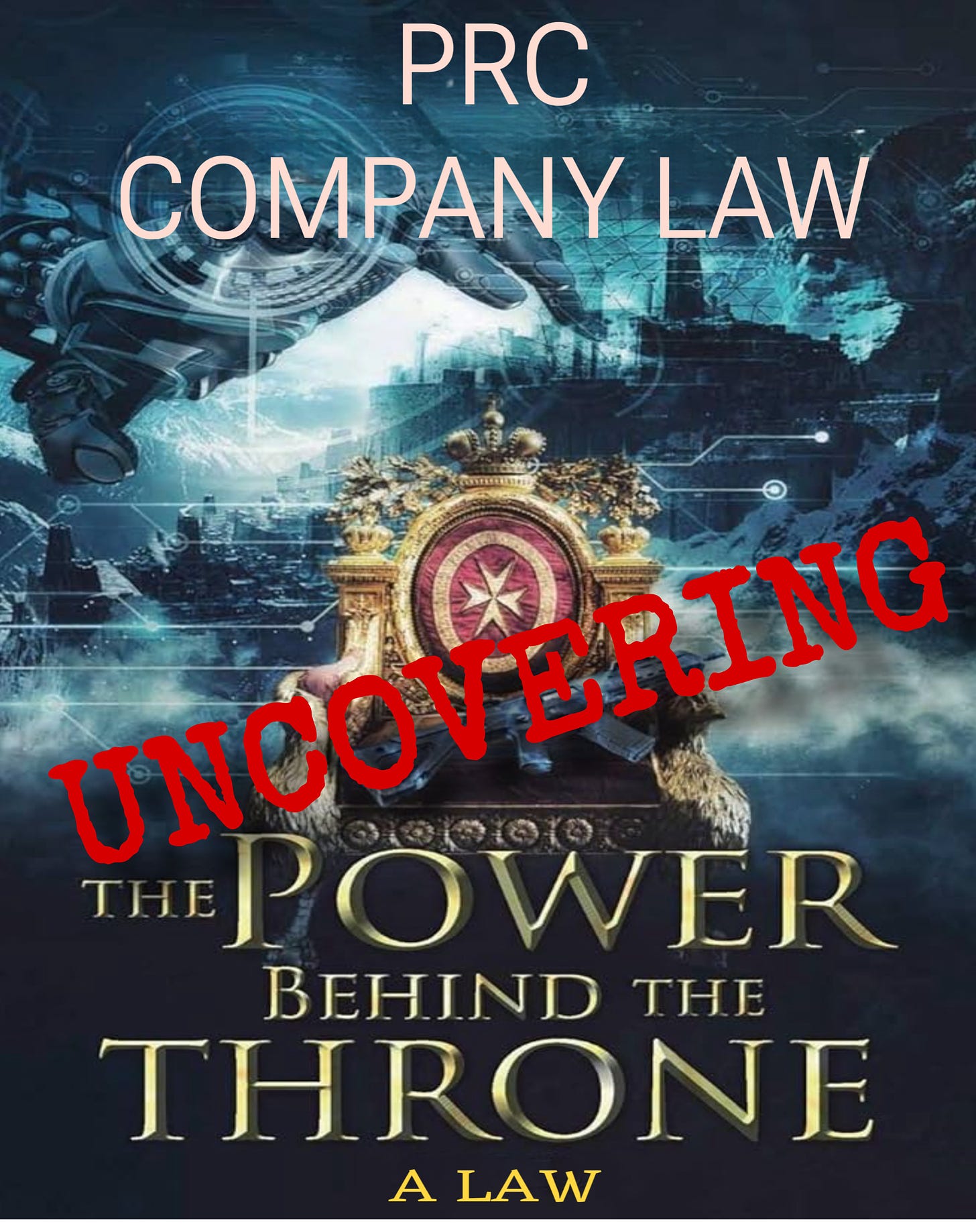One reason I started writing this newsletter was the realization that very few people read articles written by lawyers. I think even editors do not read these articles. Accordingly, I have set myself something of a challenge to write a readable article on the changes to the PRC Company Law – a topic that seems like a real snoozefest. I assume 60% of you have already stopped reading at this point but please persevere.
What is Really Interesting in the New PRC Company Law? Ok – What is Kind of Interesting? A Little Interesting?
Most changes are important but technical. I think the interesting changes are 1) requirement to pay in capital contribution by a set deadline; 2) a more sophisticated approach to dealing with ultimate controllers of companies; and 3) directors face more potential liability but will be able to claim compensation if unjustly fired.
Capital Contributions – Be Wary of Big Promises
The new PRC Company Law sets a 5-year deadline to make promised capital contributions. Crucially this requirement will apply retrospectively. Ouch!
In the old days capital contributions timelines were extremely rigid. The amount of registered capital would determine the time in which the contribution would need to be made (the higher the amount the longer you have). However, the approach was super inflexible and made it difficult for larger projects to have planning certainty. You may have approval for phase 1 but what happens if phase 2 (which is required to make the project as a whole feasible) is not approved? It was rare for phase 2 of a project to be rejected but not unheard of and there was always a risk (i.e. overcapacity in an industry leads to restrictions, environmental concerns, zoning issues, NDRC determining certain heavy industries needing to be in specific locations etc.).
In 2018 China relaxed the requirement for capital contributions to being basically within the lifetime of the company. This flexibility was meant to unfetter business and attract foreign investment. In reality, it led to an unfettering of fraudsters (who would talk up their large promised registered capital to business partners) and also led to an unknown number of foreign investors signing up for investments they never intended to make.
In one case a locally based salesman for a US company (let’s call him Jack) was point man for setting up a US company’s China subsidiary. Stereotypically, salespeople have a poor reputation for transparency and long-term planning. Jack did not rebut this stereotype. It was something of a surprise when the initial documents foresaw a planned investment of USD 30 million for a consulting company. When I asked the US general counsel why they needed such a level of investment – he was shocked and said, “we don’t have USD 30 million” and assumed it was a communication issue with Jack. To rectify this one of our associates had a call with Jack which she described as “a very weird call”. Jack feigned ignorance of all the relevant issues such as the USD 30 million investment and the conditions to be satisfied to qualify for local government subsidy and refused to provide the signed agreements. Although he remained very stumm on the concrete aspects of the project he was loquacious about bigging up his close relationship with the local government. Any probing questions were batted back with “the foreigners from [client] do not understand the Chinese way of doing things”.
As a cynic it is likely Jack was thinking that getting the US client to commit to a large China investment would 1) secure him a long-term job; 2) impress the local authority; and 3) he would not be around in 2040 when the registered capital would have to be paid in. My sneaking suspicion is that he naively thought the local authorities would just hand over money based on a written undertaking and not actual paid in capital – however, this is not the “Chinese way”. Reasonably enough the Chinese local authorities only provide serious subsidies and support once they see the money. I never found out what happened as Jack was able to convince the US client to move the matter to another (less complicated and questioning) law firm which understood “the Chinese way”.
Another issue is that shareholders that fail to make their full capital contribution on time will be directly liable to indemnify the company for any losses. Although there will be challenges for Chinese parties to act against a foreign shareholder this does open an avenue of unanticipated potential liability for shareholders. Also, if the WFOE or JV cannot pay its due debts then the company or creditors may demand shareholders accelerate unpaid capital contributions. Directors can also be held personally liable for a failure to require a shareholder to make its capital contribution.
The one positive news in respect of registered capital in the New Company Law is that it does simplify the process by which the company’s registered capital can be reduced.
[Expected 75% attrition rate – keep going! It gets better! No it doesn’t but let’s pretend it does!]
Who’s the Boss?
There has long been an issue in both piercing the corporate veil and aligning of interests between FIEs and their parents. The New Company Law is a mixed bag in this regard:
Actual Controller will have Fiduciary Obligations - The new law seeks to prevent controlling shareholders/actual controller of a company from improperly using their power to harm the interests of the company and its shareholders. Actual controllers will face director like fiduciary obligations towards the company and bear personal liability if not serving as a director but actually involved in operating the company.
This will likely impact foreign business in two regards 1) in cases where a Chinese counterpart is directed by an ultimate controller who never appears in the paperwork. These ultimate controllers often hide behind people of straw that hold leading positions on paper in companies that engage in “complicated” or non-compliant business. Often the legal representative will be the actual controller’s poor classmate of many years ago; but also 2) the interests of the foreign shareholder and Chinese JV partner or even with its WFOE do not always align. In a JV it is clearly complicated to balance the interests of the two shareholders with the joint venture. This change will add pressure upon persons who direct the business of a JV from a parent company – be it from the board or from the sidelines. But even a WFOE 100% owned by a foreign company may find itself in difficult situations where local management do not align with the foreign owner. This is most likely in the case of a restructuring – a downsizing/closure may make sense for the shareholder but if the WFOE is profitable and has reserves is it really in its interests to be euthanized? Whenever we meet a client wishing to close or downsize a WFOE production in China the first point raised by local management is “How about you close down production in Europe/USA and move the production to China?”. Accordingly, this provision may complicate employee disputes where the parent company intervenes in the operations of its Chinese subsidiary, especially a failing one.
Piercing the Veil of the Actual Controller – A common frustration in China is holding the actual counterpart (and its assets) accountable. Currently PRC law has rules to allow for piercing the corporate veil vertically (i.e. the sole shareholder is liable for the liabilities of a company unless it can prove the assets are independent). The New Company Law extends this horizontally (i.e. to companies under the ultimate controller’s control).
This will be helpful when dealing with counterparts that have several companies operating at a similar location with similar names. One entrepreneur explained he had one company to enter into contracts, another company to actually own the operations/assets and one other company for a rainy day or possible IPO. The most suspicious company we ever did due diligence on was a private enterprise which had 100% compliance – unheard of. When we confronted the owner of this history of flagrant and aggressive compliance he almost apologetically explained that this entity was planned to IPO at some stage and assured us that many of his other companies were healthily non-compliant.
[Expected 85% attrition rate – you can do it! You are special!]
Getting Rid of a Director – No Longer Fire at Will?
Being an external director of a WFOE was always quite a lark. You would go to board meetings (often in Hainan), were treated with great respect and as someone external to daily operations you did not really know why you were there, so you did not need to concentrate. Sometimes you would daydream about what superpowers it would be good to have.
Sadly, these halcyon days of daydreaming about being a superhero are consigned to the past as the PRC Company law ramps up (again) personal liability for directors. The threat of personal bankruptcy somewhat outweighs the pleasure of an occasional Gin and Tonic at a board meeting where all you need to do is nod and ask the occasional question to show you are awake even if such questions showed you to be not very well informed.
To balance things (slightly) the New Company Law offers directors the right to compensation if unjustifiably removed prior to expiration of their office term. This will likely complicate (or at least make more expensive) termination of local management who are directors (and perhaps the well-informed overseas director) of an entity in China. Traditionally such directors served at the pleasure of their overseas parent corporation, and we never even considered that any claim for compensation could be made if revoked.
Congratulations on getting this far. I expect only three readers to brave the article so far – one of whom is Peter Arkell.
China Chit Chat Webinar
No doubt those who have read so far have developed an unhealthy interest in all things New PRC Company Law. Fear not more PRC Company Law fun is coming your way.
We will be holding a webinar on “All You Wanted to Know about the New PRC Company Law but were too Afraid or too Asleep to Ask?”.
Date: Thursday, February 22, 2024
Time: 8.00AM (Berlin Time)/ 9:00 A.M. (London Time)/5:00 P.M. (Beijing Time)
Register: https://qywx.wjx.cn/vm/QIMS0FI.aspx
Next Issue
Almost all my expat friends in China sold their real estate in the last 3 years. Now many of them are looking to sell their business – this is much, much more complicated. As this has been taking up some of my time in recent months I will share in the next issue some of the challenges and issues faced by expats when seeking to sell their business in China. Even though most are disappointed in how much they receive … they are like rich Chinese in one sense, they do not like to pay lawyers!
Mark









Super interesting read - despite the topic. Thanks Mark!